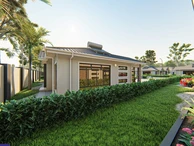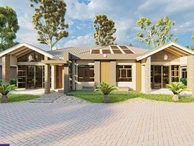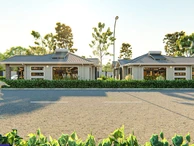 Continue with Facebook
Continue with Facebook
 Continue with Email
Continue with Email
 Continue with Facebook
Continue with Facebook
 Continue with Email
Continue with Email
 Sign up with Facebook
Sign up with Facebook
 Change filters
Change filters
 Requests
Requests




 4
4
 3
141 m²
3
141 m²

 6
6
 4
400 m²
4
400 m²

 4
4
 3
141 m²
3
141 m²

 3
3
 2
200 m²
2
200 m²

 3
3
 2
161 m²
2
161 m²


 4
4
 2
150 m²
2
150 m²
Flats and apartments for sale in Harare South, Harare, offer affordable housing options with an average price of $110,000. These properties typically have a median land area of 300 ㎡ and a median property size of around 100 ㎡, with some larger units reaching up to 4,500 ㎡. This makes Harare South an attractive choice for middle-income families and professionals looking for spacious living at reasonable prices.
Many of these flats and apartments come with fitted kitchens and tiled floors, providing practical and comfortable living spaces. Municipal water supply and good ZESA electricity connections are common features, ensuring reliable utilities for residents. The properties generally suit those seeking functional homes with essential amenities in a suburban setting.
Harare South is a diverse and rapidly developing area combining residential, commercial, and industrial zones. It offers a quieter suburban lifestyle with access to green spaces like Mukuvisi Woodlands, a nature reserve ideal for walking and wildlife viewing. The National Sports Stadium is also accessible for entertainment and sporting events. Residents benefit from good transport links, several schools, the nearby Parirenyatwa Hospital, and shopping options including Southgate Shopping Centre and local markets. The area’s growing number of restaurants adds to the convenient and varied lifestyle available here.

 3
3
 2
2
 300 m²
300 m²

 4
4
 2
130 m²
2
130 m²

 2
2
 1
80 m²
1
80 m²

 3
3
 2
130 m²
2
130 m²

 3
3
 2
200 m²
2
200 m²

 4
4
 2
300 m²
2
300 m²

 4
4
 2
400 m²
2
400 m²

| Property Size | Avg. price |
|---|---|
| 2 bedroom (View 9 properties) | $52,500 |
| 3 bedroom (View 24 properties) | $115,000 |
| 4 bedroom (View 9 properties) | $126,500 |
Navigate Zimbabwe’s property market with confidence by mastering the high-stakes differences between freehold and leasehold ownership. Our 2026 analysis details
Stop letting your spare rooms gather dust and start letting them pay your mortgage. House hacking is the 2026 blueprint for affordable homeownership in Zimbabwe
Don’t let your property or car go "underwater" just as the market shifts. Master the art of navigating negative equity in Zimbabwe’s 2026 economy by balancing
Build long-term equity with a customizable condo or prioritize flexibility in a professionally managed apartment. Compare 2026 ownership costs
Duplexes offer the villa lifestyle with a 7–10% rental yield in Harare’s 2026 market. Discover why these multi-level homes are the smarter, spacious alternative